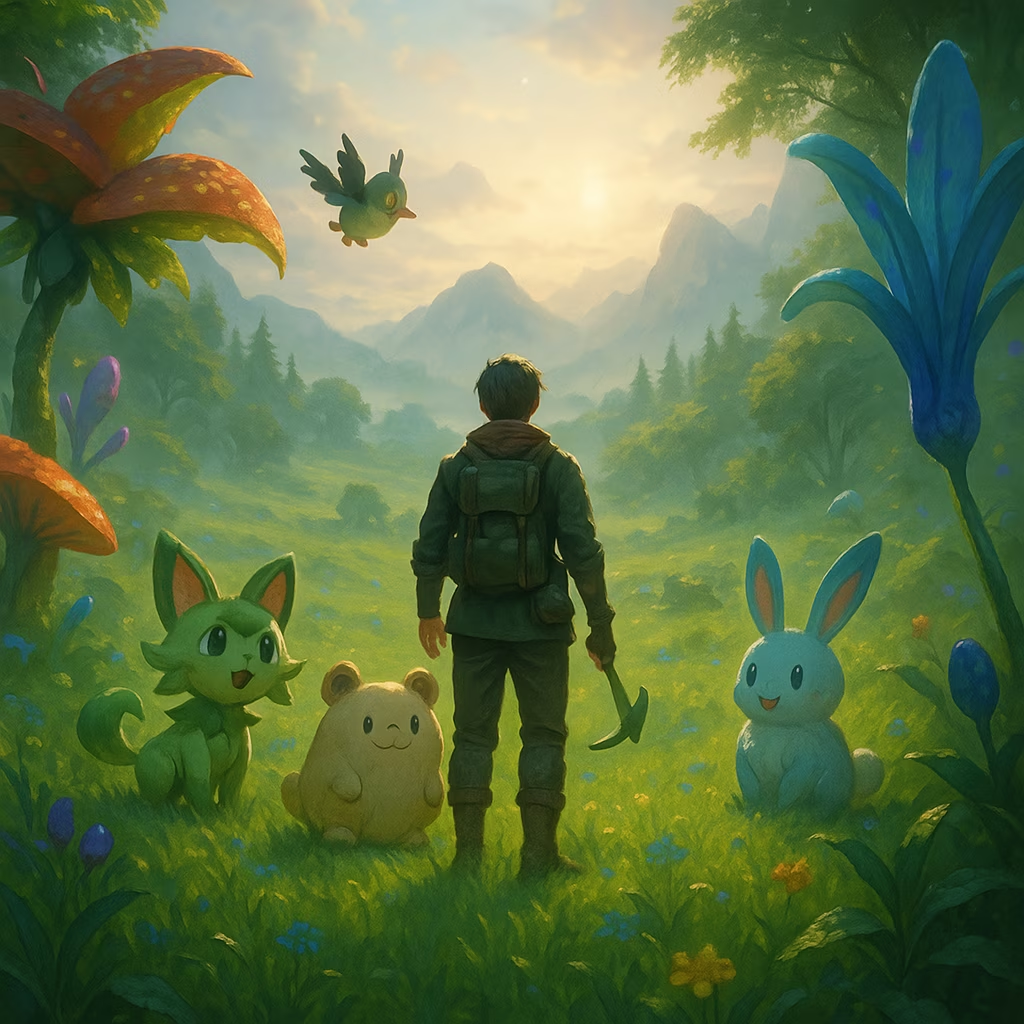In 2024, Pocketpair shook the gaming world with the early access launch of Palworld, a title that fused the familiar charm of Pokemon-like creatures with gritty survival mechanics and firearms. Players flocked to this unique blend, propelling it to the top of Steam's charts almost overnight. Yet, this meteoric rise caught the attention of Nintendo and The Pokemon Company, leading to a high-profile lawsuit that has irrevocably altered the game and cast a long shadow over similar projects. What started as an innovative twist has now become a cautionary tale for developers daring to tread in familiar territories. 😮
The Legal Storm Brewing
Shortly after Palworld's release, The Pokemon Company announced it was investigating potential intellectual property infringements, spurred by widespread fan comparisons that highlighted uncanny similarities between the two franchises. Some critics went as far as accusing Pocketpair of outright plagiarism, fueling a media frenzy.  By September 2024, Nintendo had officially filed a lawsuit against Pocketpair, alleging patent infringements on specific mechanics. This legal action wasn't just about one game—it signaled a broader crackdown that could reshape the entire genre. Why did it take so long for such scrutiny to emerge? 🤔 The answer might lie in the game's unexpected popularity, which forced industry giants to defend their turf aggressively.
By September 2024, Nintendo had officially filed a lawsuit against Pocketpair, alleging patent infringements on specific mechanics. This legal action wasn't just about one game—it signaled a broader crackdown that could reshape the entire genre. Why did it take so long for such scrutiny to emerge? 🤔 The answer might lie in the game's unexpected popularity, which forced industry giants to defend their turf aggressively.
Forced Changes in Palworld
As a direct result of the ongoing litigation, Pocketpair had to implement significant modifications to Palworld to avoid further legal repercussions. These changes were rolled out in patches, fundamentally altering core gameplay elements that players had come to love. For instance:
-
Pal Spheres: Previously, players could summon creatures using these devices in a manner reminiscent of Poke Balls. Now, Pals simply appear next to the player, stripping away the iconic capture animation.
-
Glider Mechanics: The ability to use a Pal as a makeshift glider was scrapped. Instead, players must rely on an actual glider item, which feels less immersive and more generic. 😕
-
Other minor tweaks include adjustments to companion interactions, but no major overhauls have been confirmed yet. Could this just be the tip of the iceberg? With the lawsuit still active, more alterations might follow, potentially diluting the game's original vision. Pocketpair's quick fixes show a studio scrambling under pressure, yet they managed to keep the core survival experience intact—for now.
| Key Changes in Palworld | Before Lawsuit | After Lawsuit |
|---|---|---|
| Summoning Mechanism | Pal Spheres with animations | Direct summoning |
| Gliding | Using Pals | Actual glider item |
| Mount Functions | Integrated with companions | Limited or altered |
| Overall Immersion | High, with unique twists | Reduced, more generic |
Broader Implications for the Genre
The fallout from Palworld's legal battles extends far beyond this single game, putting future Pokemon-like titles in a precarious position. One of the biggest hurdles is the patent on monster-summoning devices; Nintendo's claim over Poke Ball-like mechanics means developers can no longer use similar systems without risking lawsuits. Even if non-Pokemon games have employed them historically, this ruling sets a precedent that could stifle innovation. For example, letting players ride or glide with companions must now adhere to strict criteria, or studios might face similar legal heat. As a result:
-
Many developers are likely to abandon companion-based gliders entirely, opting for separate items like Pocketpair did. 🛩️
-
Summoning mechanics will need complete reinvention—perhaps through spells, tech gadgets, or environmental interactions—to avoid infringement.
But is avoiding these features enough? Probably not. The increased scrutiny means any new release in this space will be under a microscope from Nintendo, The Pokemon Company, and even vigilant fans. Studios must weigh the risks: innovate cautiously or face potential ruin. What if a game accidentally echoes a patented element? The threat of litigation looms large, making the genre a minefield for indie developers.
Uncertain Future and Lingering Questions
Beyond the immediate changes, Palworld's saga has sparked a broader conversation about creativity and corporate control in gaming. Future Pokemon-like games are now spotlighted, meaning developers must navigate not only gameplay design but also legal landmines. This heightened awareness could lead to safer, less ambitious projects, or it might inspire entirely new subgenres that sidestep the controversy. Yet, the challenge remains: how can studios deliver that beloved monster-taming experience without stepping on patented toes? Perhaps they'll explore alternative settings, like sci-fi or fantasy realms, to distance themselves. But even then, the specter of lawsuits persists, especially if Nintendo expands its patent enforcement. 😟
In the end, Palworld's journey from sensation to legal battleground serves as a stark reminder of the industry's complexities. While Pocketpair adapted to survive, their concessions might set a template—or a trap—for others. Will this legal crackdown ultimately foster more original ideas, or will it drive developers away from the genre altogether? Only time will tell, but one thing's clear: the era of carefree Pokemon-inspired games is over, replaced by a landscape where every mechanic must be vetted for hidden perils.
Research highlighted by Eurogamer underscores the far-reaching impact of legal disputes like the one surrounding Palworld, noting that such high-profile cases often prompt both indie and major studios to reevaluate their creative processes and risk assessments. Eurogamer's reporting has tracked how the ripple effects of Nintendo's legal actions are already influencing the design choices of upcoming monster-collecting games, with developers seeking to innovate while carefully avoiding potential IP conflicts.